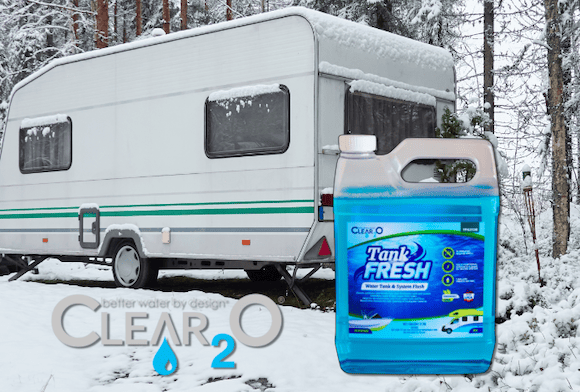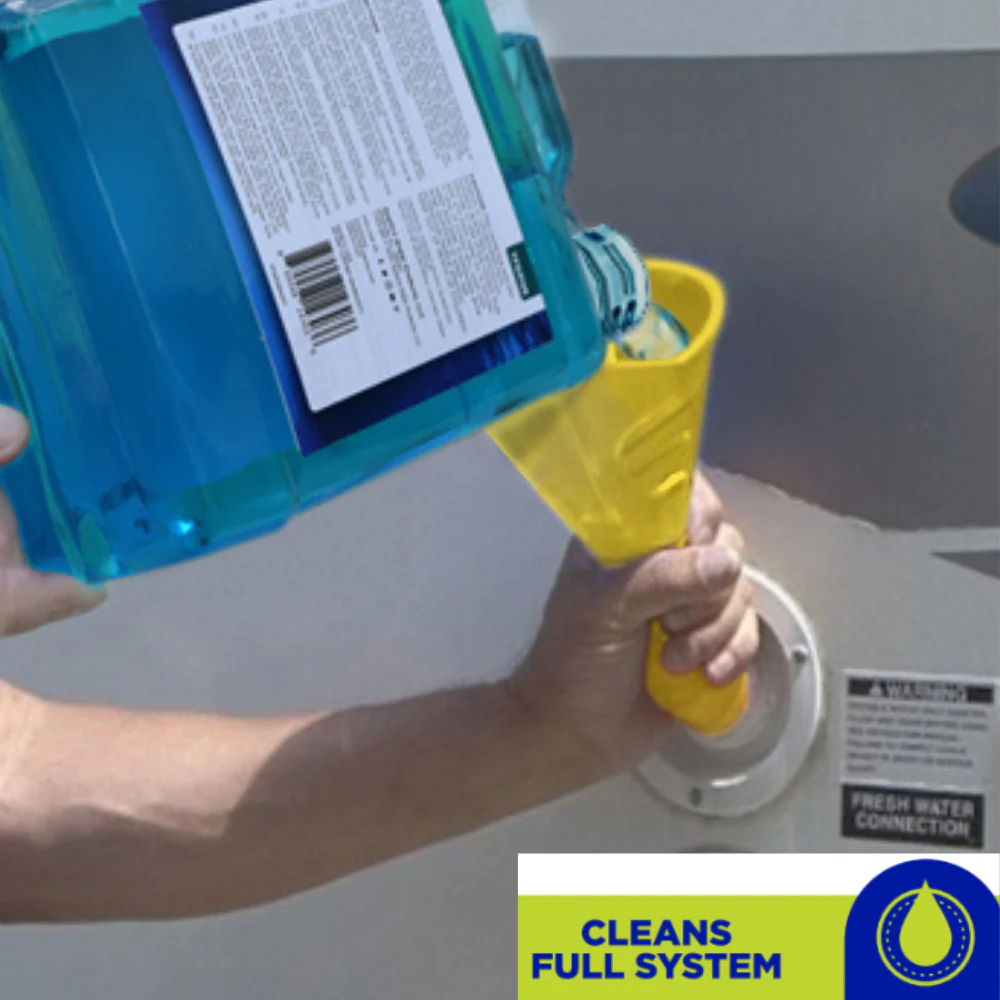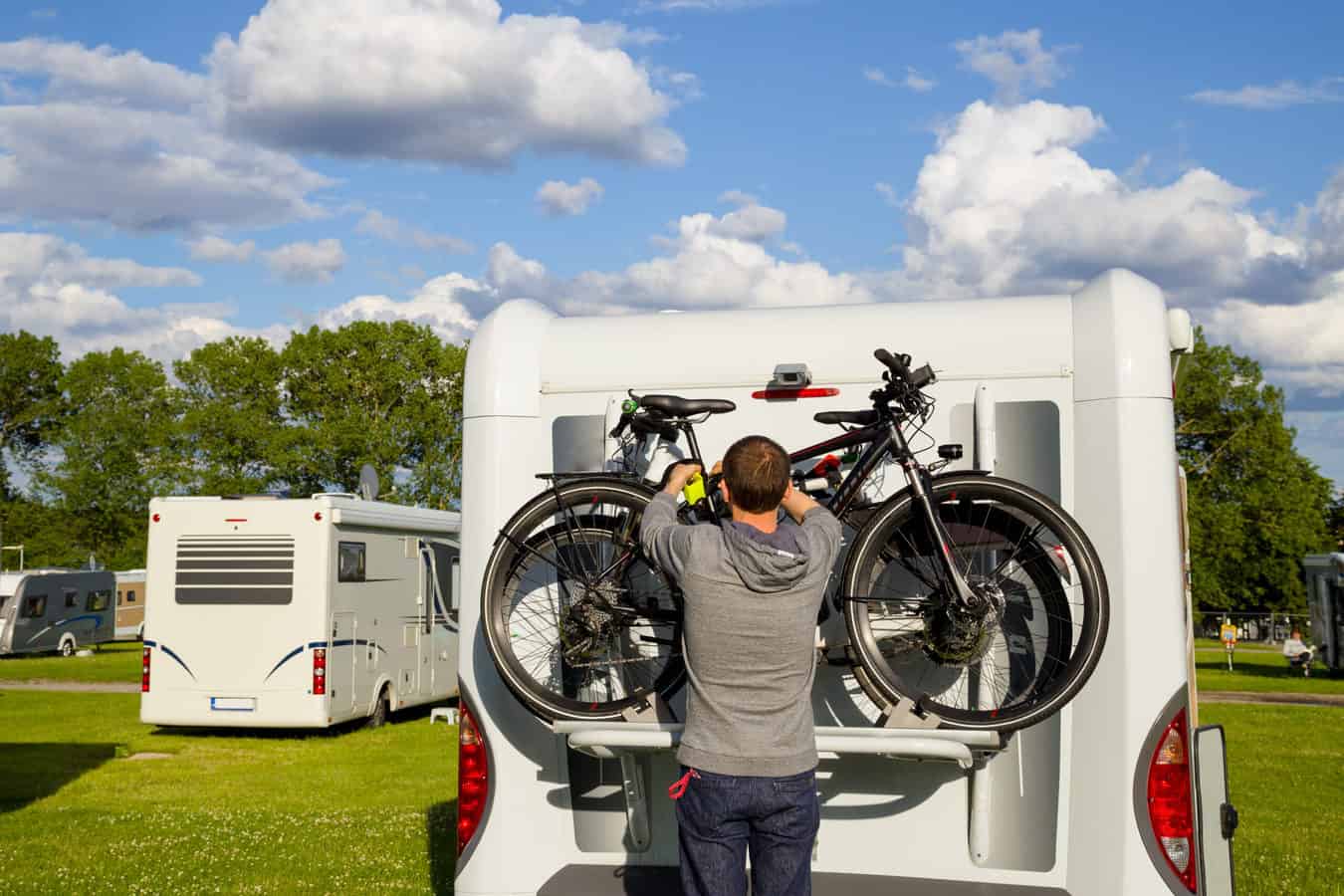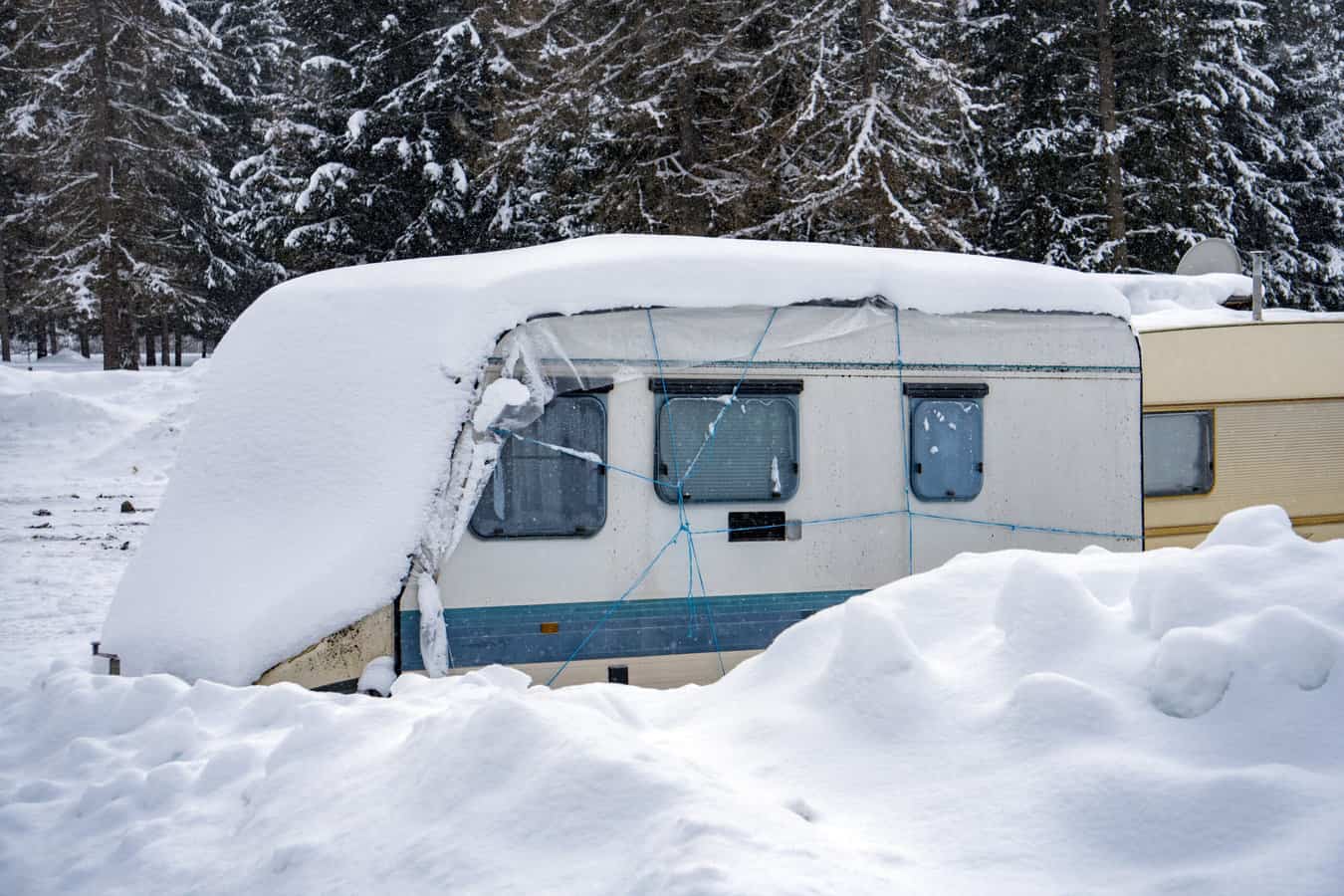
Sponsored content
Use TankFRESH to Clean and Sanitize Before You Winterize Your RV
No one likes to winterize their RV. No one. Winterizing means the end of another camping season, and that’s often a sad day for all. It also means a lot of work and even some worry. On the bright side, it’s also a great time to perform routine maintenance on your RV’s water system to make sure your rig is in great shape.
Starting to winterize, first steps
The work and worry come in when you have to visit the dump station and make sure your gray and black tanks are completely cleaned and emptied. You must also ensure all your windows and vents are closed and sealed properly. Missing just one in a harsh winter could be devastating to your RV’s interior. Then there’s the fresh water tank and water line problem. You need to be sure all of the water is out to avoid any tank or line splitting issues when it gets really cold. Decisions must be made regarding how to winterize your system.
If you live somewhere that doesn’t get too cold, you can often get away with just blowing out the water lines with air. If you live somewhere that requires the use of RV antifreeze every winter, you’ll need to properly winterize—unless you are fortunate enough to take advantage of climate-controlled storage. Checking with local RV storage companies to find out what they do can answer some of these questions.
Maintaining your fresh water system
Winterizing your water system is also a great time to maintain it. A good winterizing and maintenance plan allows for a hassle-free springtime de-winterizing process.
Many experts recommend cleaning your fresh water tanks at the end of your camping season. You’ve used your water system all camping season long, and it’s likely to have circulated the water frequently. But you are about to park it for an extended period of time with no movement in the water tank and lines.
Whatever is in there will be there all winter long, just waiting for you in the spring. Cleaning it just before winterization means you’ll be starting off in the spring with clean tanks and lines, not ones that have been potentially growing unknown contaminants during the long winter.

Cleaning before you winterize
When it comes to cleaning your water system, there are many options ranging from doing nothing to adding a bleach solution to the system. Another option is to use products designed specifically for the purpose of cleaning and sanitizing RV water systems.
Doing nothing
Doing nothing before you winterize is, of course, the worst of the available options. Your water system has had a wide variety of water added to it—some very clean and some, let’s just say, not so clean. Mold and bacteria can grow in this dark, wet environment. That’s why it’s important to clean your system on a regular basis.
Using bleach in your water system before winterizing
One of the more popular options is to add a bleach solution to your system, then flush it out after it’s circulated throughout your tank and water lines. There seem to be hundreds of “Experts” out there on YouTube, all with different ideas on what is the best bleach to water ratio, how long to leave the bleach in your system, how to flush the bleach solution out of your system, and how often you should complete the cleaning process. There’s a lot of information out there and it’s easy to get confused about what’s best.
Using too strong a bleach solution can harm your tanks, pipes and fittings, but using too weak a solution might not kill off the contaminants. The same issues come up if you leave the bleach solution in your system for too long or too short a period of time. Then once you’re done with the cleaning, you have to drain the solution out in a way that’s environmentally friendly. You don’t dare drain it off into a septic system as the bleach will kill off the good bacteria working to keep your septic system functioning properly and just draining it out on the ground can lead to groundwater contamination issues.
Using a product designed for your RV water system
A safer, easier, and more environmentally friendly option is to use a pre-mixed solution manufactured specifically for RV fresh water systems. Using this type of product takes all the guesswork out of what to add and when. Just follow the directions on the label for the amount to add for your tank size and you’re good to go.
One product that helps solve these issues is TankFRESH from the company Clear2O, a manufacturer of water filtering systems. Using TankFRESH takes all of the guesswork out of cleaning your fresh water system. There’s no mixing or measuring of ingredients. It’s all premixed, and you just add the amount appropriate for your tank size.
Clear2O recommends moving your RV back and forth a bit so all of the tank is exposed to the solution. Then after 30 minutes, just drain the tanks.
TankFRESH is environmentally safe to use, as it contains no bleach and gives off no caustic fumes. It’s safe to use around your family and pets. Using a product like TankFRESH takes all the guesswork out of mixing a solution and all the guilt out of draining the system when you’re done.
Winterize correctly to prevent problems down the road
Winterizing your RV may not be the most exciting task related to RVing. However, maintaining your fresh water system while doing so is a surefire way of avoiding big headaches down the road. The full line of TankFRESH products can help.



